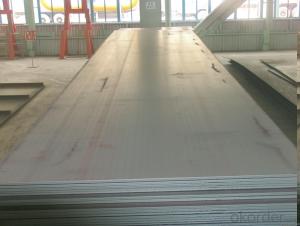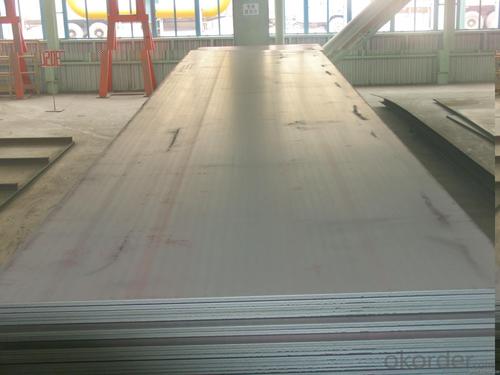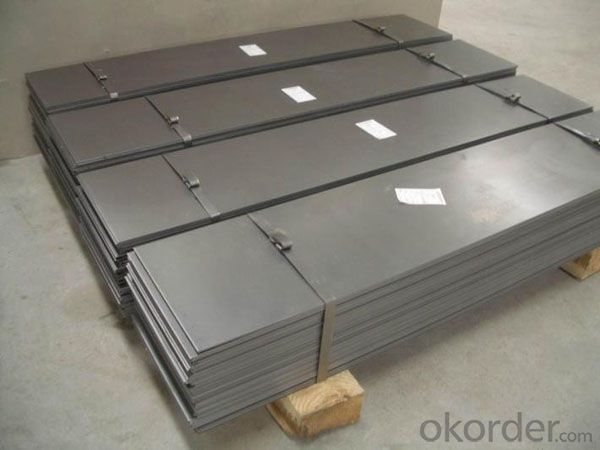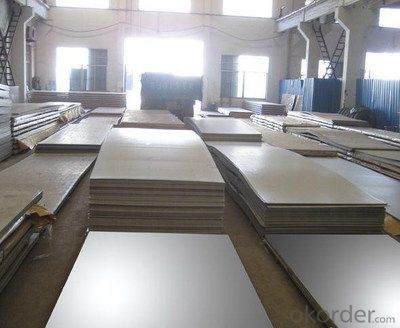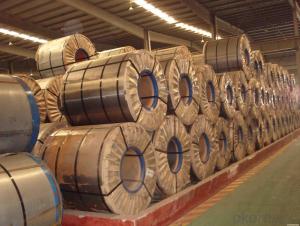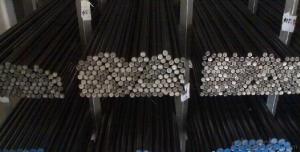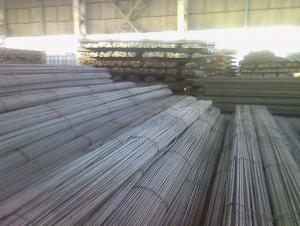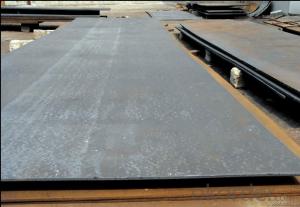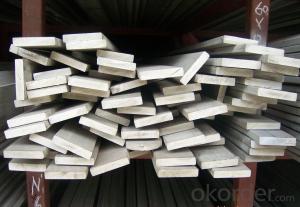Special Steel GB 65Mn Spring Steel Plate
- Loading Port:
- China main port
- Payment Terms:
- TT OR LC
- Min Order Qty:
- 30 m.t.
- Supply Capability:
- 10000 m.t./month
OKorder Service Pledge
OKorder Financial Service
You Might Also Like
Specification
Product information:
GB, YB | JIS | DIN VDEh(W-Nr.) | ASTM | AISI | SAE | BS | NF |
65 | C67 (1.0761) CK67 (1.1231) | 1064, 1065 | 1064, 1065 | 1064, 1065 | 080A67 | XC65 | |
70 | C67 (1.0761) CK67 (1.1231) | 1070 | 1070 | 1070 | 070A72 | XC70 | |
75 | C75 (1.0773) | 1074 | 1074 | 1074 | 070A78 | XC70, XC80 | |
85 | SUP3 | 1084 | 1084 | 1084 | 080A86 | ||
65Mn | 1566 | 1566 -1066 | |||||
55Si2Mn | SUP6 | 55Si7(1.0904) | 9255 | 9255 | 9255 | 250A53 | 55S6, 56S7 |
60Si2Mn | SUP7 | 65Si7(1.0906), 66Si7(1.5028), 60SiCr7(1.0961) | 9260 | 9260 | 9260 | 250A58, 250A61 | 61S7 |
60Si2CrA | 67SiCr5(1.7103) | 9254 | 9254 | ||||
50CrMn | SUP9 | 55Cr3(1.7176) | 527A60 | ||||
50CrVA | SUP10 | 50CrV4(1.8159) | 6150 | 6150 | 6150 | 735A50 | 50CV4 |
Product Show:
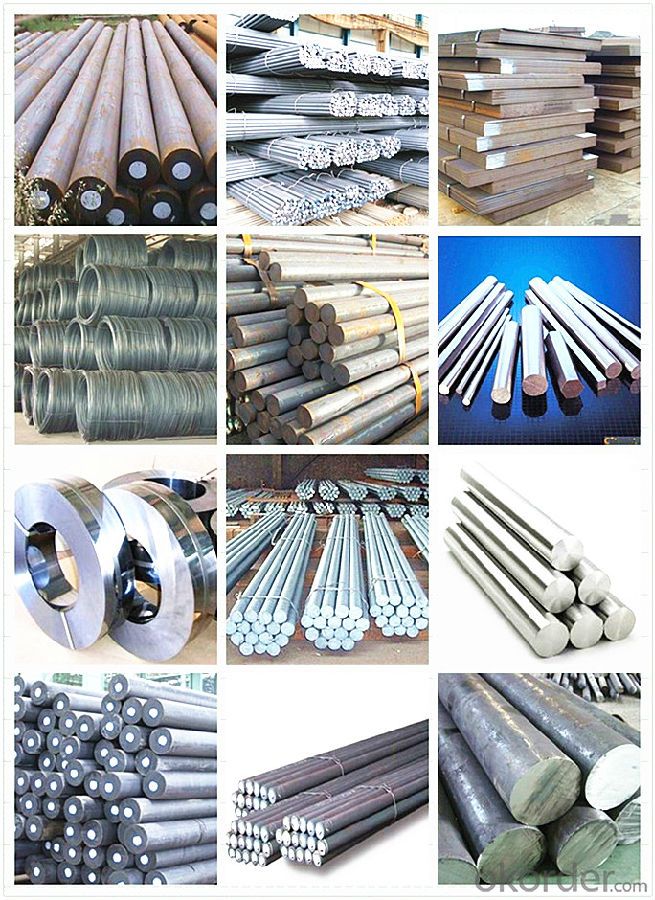
Workshop Show:
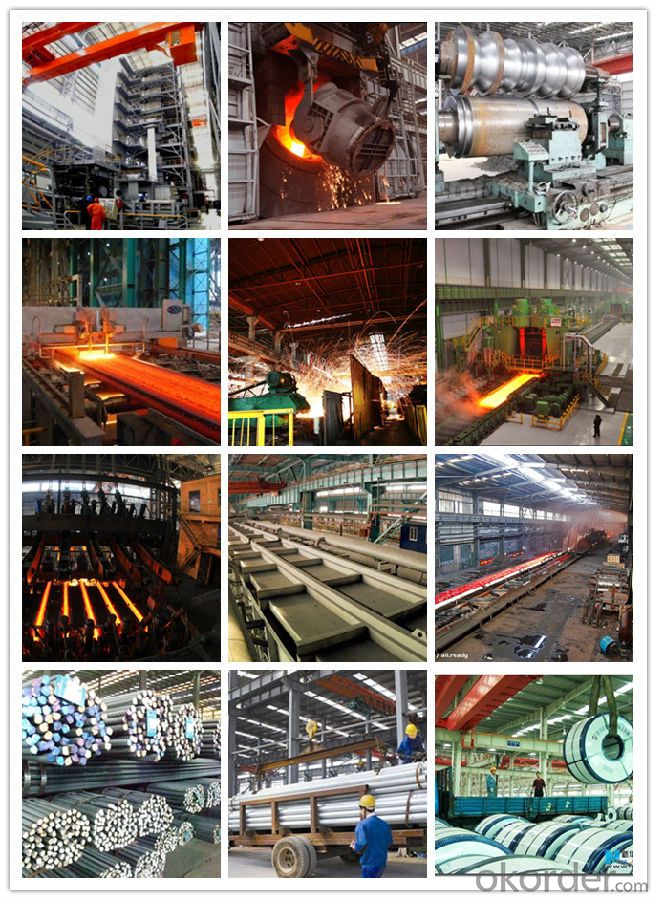
Shipping
1. FedEx/DHL/UPS/TNT for samples, Door-to-Door;
2. By Air or by Sea for batch goods, for FCL; Airport/ Port receiving;
3. Customers specifying freight forwarders or negotiable shipping methods!
Delivery Time: 3-7 days for samples; 5-25 days for batch goods.
Payment Terms
1.Payment: T/T, L/C, Western Union, MoneyGram,PayPal; 30% deposits; 70% balance before delivery.
2.MOQ: 1pcs
3.Warranty : 3 years
4.Package Informations: 1) EXPORT, In 20 feet (GW 25 ton) or 40 feet Container (GW 25 ton)
2)as customer's requirement
Why choose us?
(1) The leading exporter in China special steel industry.
(2) Large stocks for various sizes, fast delivery date.
(3) Good business relationship with China famous factories.
(4) More than 7 years steel exporting experience.
(5) Good after-sales service guarantee.
- Q: How does special steel contribute to the aerospace aftermarket industry?
- Special steel plays a crucial role in the aerospace aftermarket industry by providing critical components that are essential for the safe and efficient operation of aircraft. The high strength, durability, and temperature resistance of special steel make it an ideal material for various aerospace applications. One of the primary ways special steel contributes to the aerospace aftermarket industry is through the production of engine components. Special steel alloys, such as nickel-based superalloys, are used to manufacture turbine blades, compressor discs, and shafts, which are vital elements of jet engines. These components must withstand extreme temperatures, pressures, and mechanical stresses, and special steel alloys offer the necessary properties to ensure reliable and long-lasting performance. Moreover, special steel is also used in the manufacturing of structural components in aircraft. Steel alloys with high strength-to-weight ratios, such as titanium alloys, are employed for the construction of critical parts like landing gear, wing spars, and fuselage frames. These components need to be both lightweight and strong to withstand the forces and stresses experienced during flight. Special steel alloys provide the required mechanical properties to ensure the structural integrity and safety of the aircraft. In addition to engine and structural components, special steel also contributes to the aerospace aftermarket industry through the production of fasteners, bearings, and other small yet vital parts. These components are responsible for holding various parts together and ensuring proper functioning of systems. Special steel alloys with excellent corrosion resistance, fatigue strength, and wear resistance are utilized to ensure the reliability and longevity of these critical components. Furthermore, special steel plays a crucial role in the maintenance, repair, and overhaul (MRO) activities of the aerospace aftermarket industry. With the rigorous demands placed on aircraft components, regular inspections, repairs, and replacements are necessary to ensure their continued airworthiness. Special steel materials are often used for MRO purposes due to their compatibility with existing aircraft systems and their ability to meet the stringent requirements of aerospace regulations. Overall, special steel is an indispensable material in the aerospace aftermarket industry. Its unique properties and characteristics enable the production of high-performance engine components, lightweight structural parts, and reliable small components. The use of special steel ensures the safety, efficiency, and longevity of aircraft, contributing to the overall success and growth of the aerospace aftermarket industry.
- Q: What are the different joining methods for special steel?
- There are several different joining methods for special steel, including welding, brazing, soldering, and mechanical fastening. Each method has its own advantages and considerations depending on the specific requirements of the application. Welding is commonly used for joining thick sections of steel and offers high strength and durability. Brazing and soldering involve melting a filler material to bond the steel pieces together at lower temperatures, making them suitable for joining thin or delicate components. Mechanical fastening methods, such as bolts, nuts, and rivets, provide a non-permanent joining solution and are often used in applications that require disassembly or reassembly.
- Q: What are the requirements for special steel used in construction equipment manufacturing?
- The requirements for special steel used in construction equipment manufacturing typically include high strength, durability, and resistance to wear and corrosion. Additionally, the steel should have good weldability and machinability to ensure ease of fabrication. It should also possess excellent impact resistance to withstand heavy loads and harsh working conditions.
- Q: Can special steel be used for making marine components?
- Yes, special steel can be used for making marine components. Special steel, also known as marine grade steel, is specifically designed to withstand the harsh conditions of marine environments. These environments are exposed to corrosion, high humidity, and saltwater, which can cause regular steel to deteriorate quickly. Marine grade steel is typically made with added alloys, such as nickel, chromium, and molybdenum, which provide excellent corrosion resistance and durability. These alloys help the steel resist the corrosive effects of saltwater and prevent rusting. Additionally, special steel is often coated with protective coatings or treated to further enhance its resistance to corrosion. Marine components made from special steel include ship hulls, propellers, shafts, valves, pipelines, and various structural elements. The use of special steel ensures the longevity and reliability of these components in demanding marine conditions. Furthermore, the strength and toughness of special steel make it suitable for withstanding the high mechanical stresses and impacts experienced at sea. In summary, special steel is an ideal material for making marine components due to its superior corrosion resistance, durability, and strength. It helps to ensure the longevity and reliability of marine structures and equipment in harsh marine environments.
- Q: How is bearing steel used in the manufacturing of bearings?
- Bearing steel is specifically designed for the manufacturing of bearings due to its high hardness, wear resistance, and excellent rolling contact fatigue strength. This type of steel is used to produce the inner and outer rings, as well as the rolling elements of bearings. It undergoes a specialized heat treatment process to enhance its mechanical properties and ensure proper microstructure. The use of bearing steel in manufacturing ensures the durability and longevity of bearings, allowing them to withstand heavy loads, high temperatures, and corrosive environments.
- Q: How does special steel contribute to the manufacturing of automotive engine components?
- The manufacturing of automotive engine components heavily relies on special steel to enhance their strength, durability, and performance. Special steel possesses unique properties that make it suitable for critical engine parts like crankshafts, camshafts, connecting rods, valve springs, and cylinder heads. The exceptional strength of special steel is one of its primary advantages in automotive engine components. Engine parts made from special steel can withstand high stress, heavy loads, and extreme temperatures without experiencing deformation or failure. This strength ensures that the engine operates efficiently and reliably, even under demanding conditions. Furthermore, special steel offers superior durability, which is crucial for the longevity and performance of engine components. Its resistance to wear, corrosion, and fatigue ensures that the engine parts maintain their functionality for an extended period. This durability translates into increased lifespan and reduced maintenance requirements for the engine, resulting in higher customer satisfaction and lower costs for vehicle owners. The use of special steel in automotive engine components also contributes to improved performance. Special steel allows for the creation of lightweight components, reducing the overall weight of the engine and enhancing fuel efficiency. Additionally, the high precision and dimensional accuracy achievable with special steel manufacturing processes result in better engine performance, reduced friction, and improved power output. Moreover, special steel exhibits excellent machinability, simplifying the manufacturing process of engine components. Its ability to be easily formed, cut, and shaped enables the production of complex designs and intricate features, leading to enhanced efficiency and performance in the final product. In conclusion, special steel plays a vital role in the manufacturing of automotive engine components due to its exceptional strength, durability, and performance. Its usage results in engines that are more reliable, efficient, and long-lasting, ultimately contributing to the overall quality and satisfaction of vehicles.
- Q: What are the specific requirements for special steel used in the electronics industry?
- In order to meet the unique demands of the electronics industry, special steel must fulfill certain requirements. These requirements include: 1. To protect electronic components from environmental factors like moisture, humidity, and chemical exposure, special steel used in the electronics industry must have high corrosion resistance. 2. Efficient transmission of electricity within electronic devices relies on the excellent electrical conductivity exhibited by the steel. This property is crucial for the proper functioning of electronic components. 3. Depending on the application, special steel used in the electronics industry must possess specific magnetic properties. Some electronics require non-magnetic steel to avoid interfering with sensitive magnetic components, while others may need specific magnetic properties for magnetic shielding or as core material in transformers. 4. To ensure the longevity and reliability of electronic components, the steel must possess high strength and durability, enabling it to withstand the stresses and strains encountered during the manufacturing process and throughout the lifespan of the electronic device. 5. Special steel used in the electronics industry must be able to withstand high temperatures without compromising its structural integrity or electrical properties. This is particularly important in electronic devices that generate heat, such as computer processors or industrial control systems. 6. The steel must be easily formable and machinable to enable efficient manufacturing processes and the production of intricate electronic components. This allows for the fabrication of complex shapes and designs required in the electronics industry. 7. To ensure optimal performance and reliability of electronic devices, special steel used in the electronics industry should have minimal impurities and contaminants. High purity steel guarantees the absence of unwanted elements that may cause electrical or chemical interference. Meeting these specific requirements for special steel used in the electronics industry is crucial for producing high-quality and reliable electronic devices. By fulfilling these requirements, the steel can withstand the challenges and environmental conditions unique to the electronics industry, ultimately contributing to the overall performance and functionality of electronic devices.
- Q: How does special steel contribute to the power transmission sector?
- Special steel plays a crucial role in the power transmission sector due to its exceptional properties and performance characteristics. Firstly, special steel is known for its high strength and resilience, which makes it an ideal material for manufacturing various components of power transmission systems. For instance, special steel is widely used in the production of transmission towers, where its strength ensures the stability and durability of the structures, even under extreme weather conditions. Moreover, special steel is highly resistant to corrosion, which is particularly beneficial in the power transmission sector. Power transmission equipment is often exposed to harsh environments, such as high humidity, chemical pollutants, and saltwater exposure, which can accelerate corrosion. By utilizing special steel in the manufacturing process, the risk of corrosion-related failures is significantly minimized, ensuring the reliable and uninterrupted transmission of power. Additionally, special steel offers excellent electrical conductivity, making it an ideal choice for conductors and cables used in power transmission. The efficient transfer of electrical energy is crucial to minimize power losses and optimize the transmission process. Special steel conductors provide low resistance to the flow of electricity, enabling efficient power transmission over long distances. Furthermore, special steel is also utilized in the production of transformers and other electrical equipment used in power transmission. The magnetic properties of special steel make it an excellent material for transformer cores, enabling efficient energy conversion and minimizing energy losses during transmission. In conclusion, special steel contributes significantly to the power transmission sector by offering strength, corrosion resistance, electrical conductivity, and magnetic properties. These properties ensure the reliability, efficiency, and longevity of power transmission systems, ultimately supporting the uninterrupted supply of electricity to industries, businesses, and households.
- Q: How does special steel contribute to the aerospace noise reduction?
- Special steel contributes to aerospace noise reduction in several ways. Firstly, it is used in the construction of aircraft engine components such as fan blades and turbine discs. These components are subject to high temperatures and pressure, and special steel helps maintain their structural integrity, reducing vibration and noise. Secondly, special steel is also used in the manufacturing of aircraft fuselage and wings, where it helps dampen vibrations caused by aerodynamic forces, thus reducing noise. Additionally, special steel can be used in the production of sound-absorbing materials, which are used to line the interior of aircraft cabins, further reducing noise levels and improving passenger comfort. Overall, the use of special steel in various aerospace applications plays a crucial role in minimizing noise and improving the overall acoustic performance of aircraft.
- Q: What are the challenges in welding special steel alloys?
- Welding special steel alloys presents various obstacles due to their distinct properties and composition. Key challenges encountered when welding special steel alloys include the following: 1. Elevated melting point: Special steel alloys typically possess higher melting points compared to regular steel, necessitating increased heat input during the welding process. This can create difficulties in achieving proper fusion and may require specialized welding equipment and techniques. 2. Disparity in thermal expansion: Special steel alloys may exhibit different coefficients of thermal expansion in comparison to the base metal or other materials being joined. This can result in the development of stress and distortion during welding, impacting the structural integrity of the welded joints. 3. Heat sensitivity: Certain special steel alloys are more susceptible to heat-affected zone (HAZ) cracking and other forms of weld defects. The heightened heat input during welding can induce the formation of brittle phases or precipitates, leading to reduced mechanical properties and potential weld failures. 4. Metallurgical alterations: Welding special steel alloys can bring about significant metallurgical changes in the base metal and the heat-affected zone. These changes encompass the formation of new microstructures, variations in hardness, and modifications in chemical composition. Such alterations can affect the overall performance and properties of the welded joints. 5. Pre-weld and post-weld treatments: Specific pre-weld and post-weld treatments are often required for special steel alloys to minimize the risk of weld defects and optimize the properties of the welded joints. These treatments may encompass preheating, post-weld heat treatment, or the utilization of specialized filler metals to ensure adequate weld integrity. 6. Limited consumable availability: Special steel alloys may have a limited selection of suitable consumables, such as filler metals and shielding gases, which are vital for achieving high-quality welds. The absence of appropriate consumables can make it challenging to find compatible materials that offer sufficient strength and corrosion resistance in the welded joints. To overcome these challenges effectively, it is essential to possess a comprehensive understanding of the specific properties and requirements of the special steel alloy being welded. The utilization of proper welding techniques, including heat control, filler material selection, and post-weld treatments, is crucial to ensure welds of superior quality with optimal mechanical properties and structural integrity. Moreover, collaborating with material suppliers, welding experts, and adhering to industry standards and guidelines can facilitate the effective resolution of challenges associated with welding special steel alloys.
Send your message to us
Special Steel GB 65Mn Spring Steel Plate
- Loading Port:
- China main port
- Payment Terms:
- TT OR LC
- Min Order Qty:
- 30 m.t.
- Supply Capability:
- 10000 m.t./month
OKorder Service Pledge
OKorder Financial Service
Similar products
Hot products
Hot Searches
Related keywords
